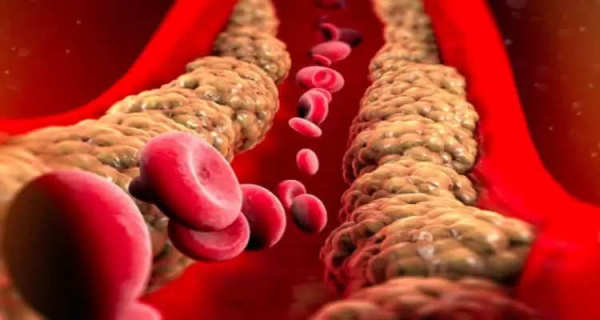
Frequent Sleep Disruptions May Indicate Elevated Cholesterol Levels
Recognizing High Cholesterol Symptoms at Night
In today’s fast-paced world, unhealthy eating habits and a sedentary lifestyle have led to a surge in high cholesterol cases. Cholesterol is a waxy, fat-like substance essential for various bodily functions. However, it exists in two forms—good cholesterol (HDL) and bad cholesterol (LDL). When LDL levels rise excessively, it begins accumulating in the arteries, leading to blockages that significantly increase the risk of severe health conditions such as strokes and heart attacks.
While high cholesterol often remains undetected in its early stages, certain warning signs can appear, especially at night. Identifying these symptoms in time can help prevent complications. In this article, we’ll discuss some nighttime symptoms that may indicate rising cholesterol levels.
Experiencing difficulty breathing at night could be a warning sign of high cholesterol. Elevated cholesterol levels can cause arterial narrowing, restricting blood flow and leading to breathlessness. If you suddenly find yourself gasping for air or struggling to breathe while sleeping, seek medical attention immediately.
Waking up multiple times during the night could be linked to high cholesterol. Poor circulation due to clogged arteries affects oxygen and nutrient supply, leading to restlessness and insomnia. If you frequently experience disrupted sleep, it is advisable to consult a doctor and undergo a health evaluation.
Experiencing chest discomfort, pressure, or pain while lying down can be a sign of high cholesterol. Excess LDL cholesterol leads to plaque buildup, obstructing blood flow and depriving the heart of oxygen. This can result in chest pain, which should never be ignored. If you notice such symptoms, seek medical help immediately, as it could indicate an underlying cardiovascular issue.
A sensation of tingling or numbness in the extremities can also be a warning sign of high cholesterol. Impaired circulation due to cholesterol-induced artery blockages can lead to reduced blood flow, causing these symptoms. If this occurs frequently, consult a healthcare professional as soon as possible.
Detecting and addressing high cholesterol early is crucial in preventing life-threatening conditions. If you notice any of these symptoms at night, it is essential to seek medical advice and undergo necessary health screenings.
This article provides general information and should not be considered a substitute for professional medical advice. Always consult a doctor or healthcare expert for personalized guidance. newscrab.com does not take responsibility for the accuracy of this information.